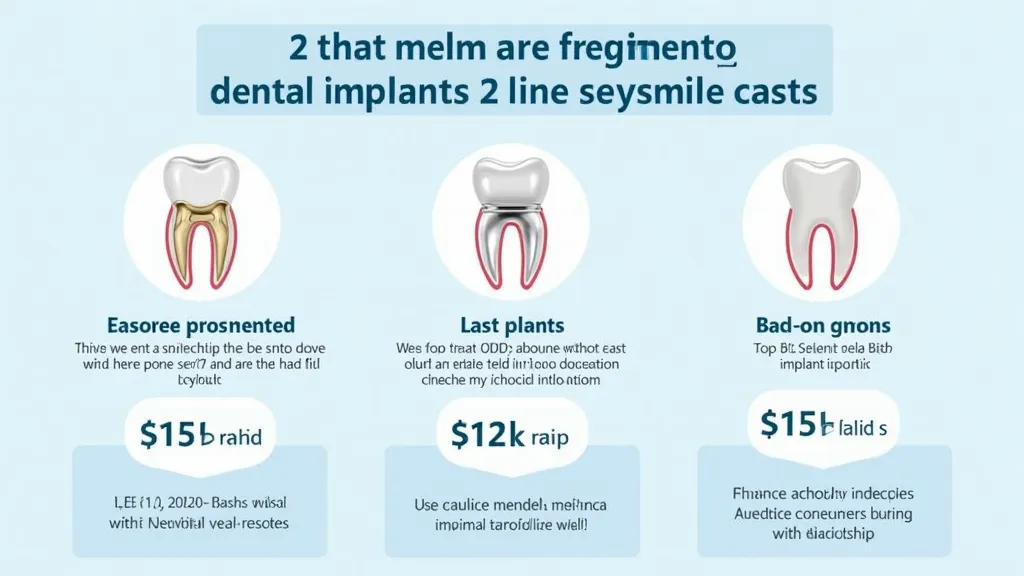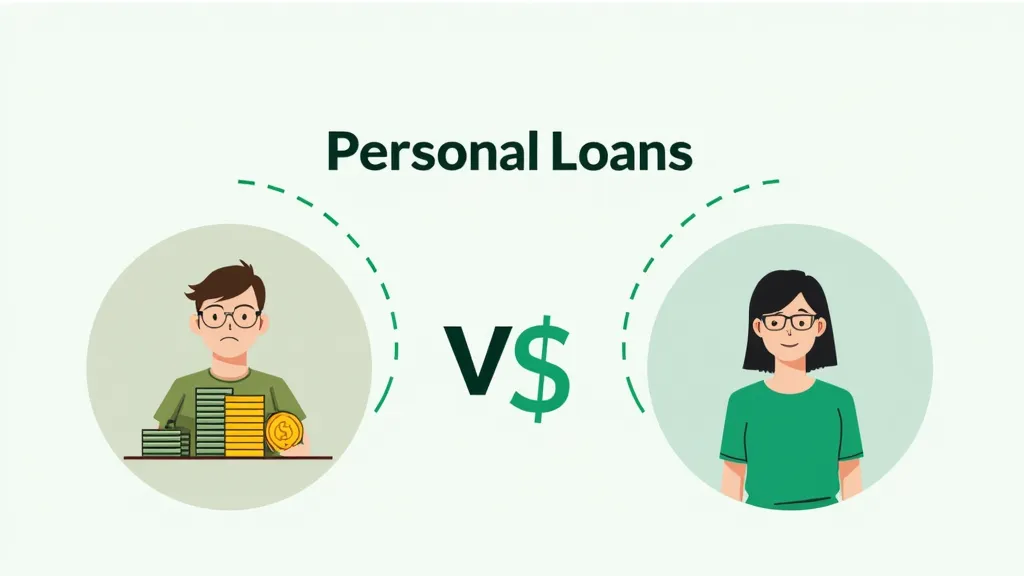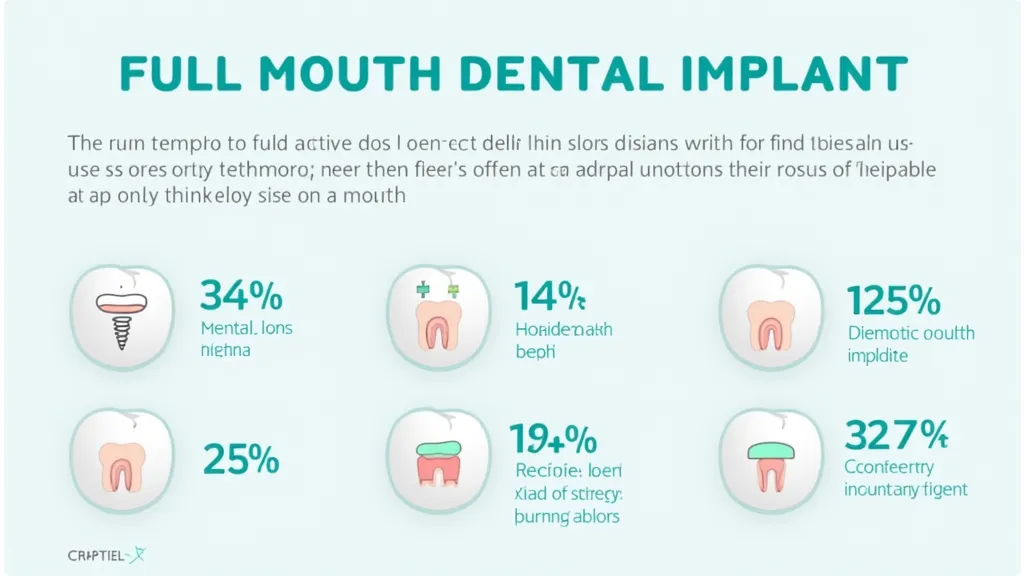Understanding Dental Implant Costs and Financing
Explore the costs of dental implants, funding options for seniors, and how to finance full mouth implants near you in 2025.

Introduction to Dental Implants
Dental implants have revolutionized the field of dentistry, offering a good solution for missing teeth. Unlike dentures, implants are anchored into the jawbone, providing stability and a natural look. However, the cost of dental implants can vary significantly based on various factors. In this article, we will explore the costs associated with dental implants, funding options, and specific considerations for seniors seeking these services in 2025.
Understanding the Cost of Dental Implants
The cost of dental implants can be influenced by several factors including the type of implant used, the skill of the dentist, and the geographical location of the practice. On average, a single dental implant can cost between $3,000 and $4,500, which typically includes the implant, abutment, and crown. For those considering full mouth dental implants, the price can escalate to $20,000 or more.
Factors Influencing Dental Implant Costs
- Type of Implant: There are different types of dental implants, such as endosteal and subperiosteal, which can affect pricing.
- Location: The regional cost of living can significantly impact the overall price of dental implants.
- Specialists: The experience and qualifications of the dental professional can lead to variations in cost.
- Additional Procedures: Some patients may require bone grafting or sinus lifts, which can increase overall expenses.
Funding for Dental Implants in 2025
In 2025, several funding options are available for individuals seeking help financing dental implants. Here are some of the very popular options:
Dental Insurance
Many dental insurance plans offer partial coverage for dental implants. It's essential to check with your insurance provider to understand the extent of your benefits.
Flexible Financing Plans
Many dental offices provide flexible payment plans that allow patients to pay for their implants over time. This option can make the financial burden more manageable.
Health Savings Accounts (HSAs)
Utilizing an HSA can be beneficial as it allows you to use pre-tax dollars for dental expenses, including implants.
Third-Party Financing
Companies like CareCredit or LendingClub offer financing options specifically for dental procedures. These plans often come with low or low interest for a certain period.
Dental Implant Options for Seniors
Seniors often face unique challenges when it comes to dental health and financing. Fortunately, there are tailored options available:
Senior Discounts
Many dental practices offer discounts for seniors, which can significantly reduce the cost of dental implants.
Public sector Assistance Programs
Programs like Medicare and Medicaid may provide assistance for dental services, including implants, for eligible individuals. It is advisable to inquire about specific coverage options based on your circumstances.
I Need Help Financing Dental Implants Near Me
If you are searching for ways to finance dental implants near you, consider the following steps:
- Research Local Dental Practices: Look for dental practices that offer financing or payment plans.
- Consultation: Schedule a consultation to discuss your needs and explore financing options available at the clinic.
- Comparison Shopping: Don't hesitate to compare costs and services among different providers to find the top option.
Full Mouth Dental Implants
Full mouth dental implants, also known as implant-supported dentures or all-on-four implants, are a comprehensive solution for those missing very or all of their teeth. This approach typically involves four to six implants being placed in the jaw and then supporting a full set of prosthetic teeth. The benefits of full mouth implants include:
- Stability: Unlike traditional dentures, full mouth implants are securely anchored, allowing for better chewing and speaking.
- Bone Preservation: Implants help maintain the integrity of the jawbone, preventing the bone loss commonly associated with missing teeth.
- Natural Appearance: Full mouth implants are designed to look and feel like natural teeth, greatly enhancing aesthetic appeal.
Frequently Asked Questions (FAQ)
What is the average cost of dental implants?
The average cost of a single dental implant ranges from $3,000 to $4,500, while full mouth dental implants may cost $20,000 or more.
Are there financing options available for dental implants?
Yes, many dental practices offer financing plans, and third-party financing options are also available to help patients manage costs.
Do dental implants hurt?
Very patients report minimal discomfort during the procedure due to anesthesia. Post-operative pain can be managed with prescribed medications.
How long do dental implants last?
With proper care and maintenance, dental implants can last a lifetime. Regular dental check-ups are essential to monitor their condition.
Conclusion
Understanding the cost of dental implants, available funding options, and specific considerations for seniors is crucial in making informed decisions about dental health. Whether you are seeking help financing dental implants near you or considering full mouth options, being well-informed can lead to achieving a smile you deserve.
References
- American Academy of Implant Dentistry. (2025). "Dental Implants: The Facts."
- National Institute of Dental and Craniofacial Research. (2025). "Dental Implants: A Comprehensive Overview."
- Consumer Guide to Dentistry. (2025). "Dental Implant Costs and Insurance Coverage."







